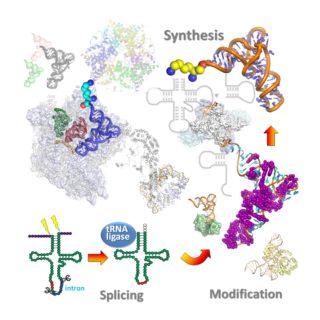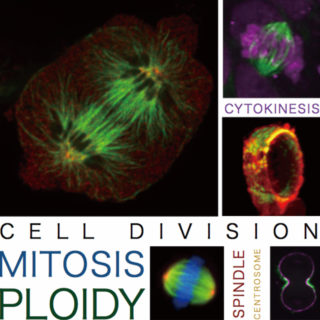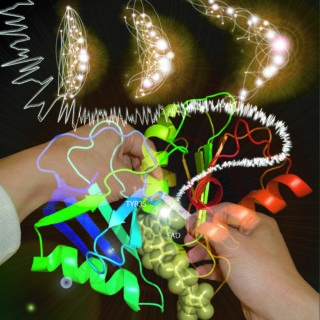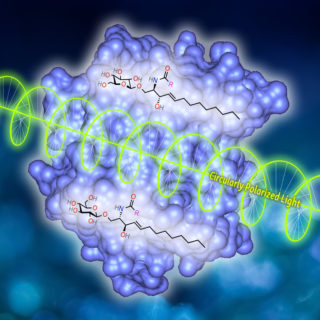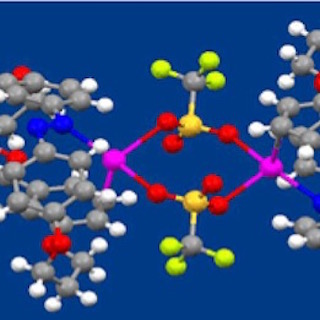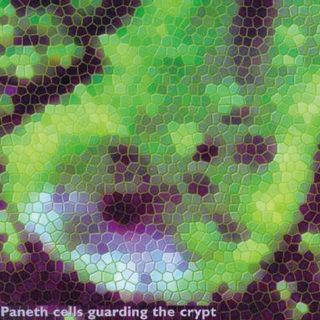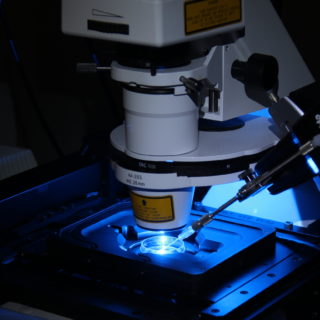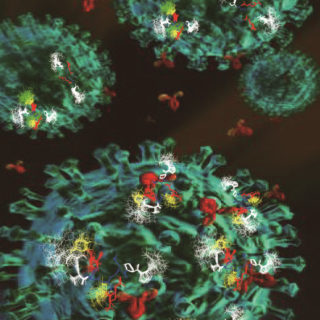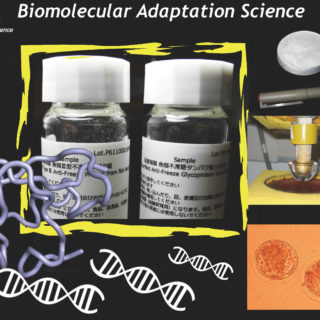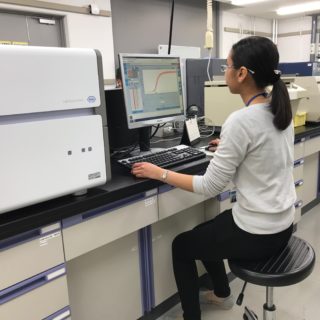This course will help students develop research skills to investigate the nature of life from new perspectives based on a foundation in physics, chemistry, and biology. The course is designed to give individuals the life sciences knowledge and practical skills to have an active role in various industries.
As a prerequisite for the course, candidates are expected to have learned not only biology but also the basic natural sciences such as chemistry, physics, and mathematics during their undergraduate years.
To cultivate the next generation of leaders with innovative ideas supported by solid background knowledge, this course provides structured and comprehensive education in the life science fields. This educational program introduces four new essential life science study areas that were difficult to cover in previous curricula.
Research Fields and Laboratories
Bioinformation and Molecular Sciences
Genome-based research, including structure and function analysis of biological molecules, super-molecular complexes and organelle, has made it possible to consider life as a network of bio-functional molecules. Furthermore, it is essential to establish a new research area of “Bioinformation and Molecular Sciences” by fusing various research fields. Students in this field will do research on revealing life phenomena by using genetic information, X-ray structural biology, cellular biological technics and molecular cell biology.
Biomaterials Science
In this field, students learn about the structures and characteristics of the substances that form life, as well as the chemical interactions and structures that are essential to biological functions. Students also focus on how these chemicals control the biological responses to the external environments. Moreover, they will use state-of-the-art technology to learn about drug discovery, functional foods, and the creation of artificial functional molecules. This field offers an overview of life from the perspective of material science based on chemistry and physics.
Functional Cellular Sciences
All biological phenomena are caused by cellular activity. In this field, students learn about cellular functions through studying the molecular biology of internal and external cellular communication networks, interactions among cells, and control mechanisms on the immune system and nervous system. It is also aimed at analyzing the mechanism and morphogenesis of stimulus reception and cellular responses using cutting-edge biomolecular imaging, and to understand the mechanism of biological functions in the immune and nervous systems. Efforts to clarify the cellular functions that support biological diversity enable more developments in disease treatments.
Functional and Regulatory Life Science
The biopathways from translation of genetic information to posttranslational protein modifications form a highly complicated system that is regulated by a variety of biomolecules. Disruption of this sophisticated biological system causes various diseases. We also have immune systems to protect against pathological injury and to repair or regenerate damaged tissues to restore normal function. In this field, you can learn and study complex living systems using a systematic and comprehensive approach that utilizes experiments at the molecular and cellular levels to specific tissues and animal models. A comprehensive study of the molecular mechanisms that maintain and regulate complicated biological functions can be achieved by means of organic synthesis and even genetic engineering, including emerging genome editing techniques. Conducting this research will give you the opportunity to master advanced strategies and methodologies needed in the drug discovery and biomedical fields.
(Cooperative Education) Biomolecular Adaptation Science
Organisms produce various biomolecules that can be utilized for industrial and medicinal applications. To practically design and construct such biomolecules, students in this field learn both the basics and applications of molecular biology, biochemistry, nucleic acid engineering, photo-microscopy, and structural biology using both NMR and X-ray approaches. Specifically, our studies focus on the structure-function relationship of different types of macromolecular antifreeze and regulatory mechanisms of functional nucleic acids. We believe that your research experience on such biomolecules at the nucleic acid, protein, and cellular levels will improve your expertise in life science and will be indispensable for the advancement of science.
(Cooperative Education) Frontier Biomaterials Science
The educational objective is to develop knowledge and experience in the fields of life science, materials science, and nanotechnology. The National Institute for Materials Science (NIMS) is the core research organization for the fields of materials science and nanotechnology in Japan. The Institute is highly experienced in the creation of metals, and inorganic and organic materials, as well as the nanofacturing of materials. In the field of Frontier Biomaterials Science, the Institute will take full advantage of these skills to analyze phenomena such as the impact of nano-microstructures on cell differentiation and function at the molecular level and to control cell function and sense the state of cells, using biomolecules such as proteins, peptides, and oligonucleotides.
